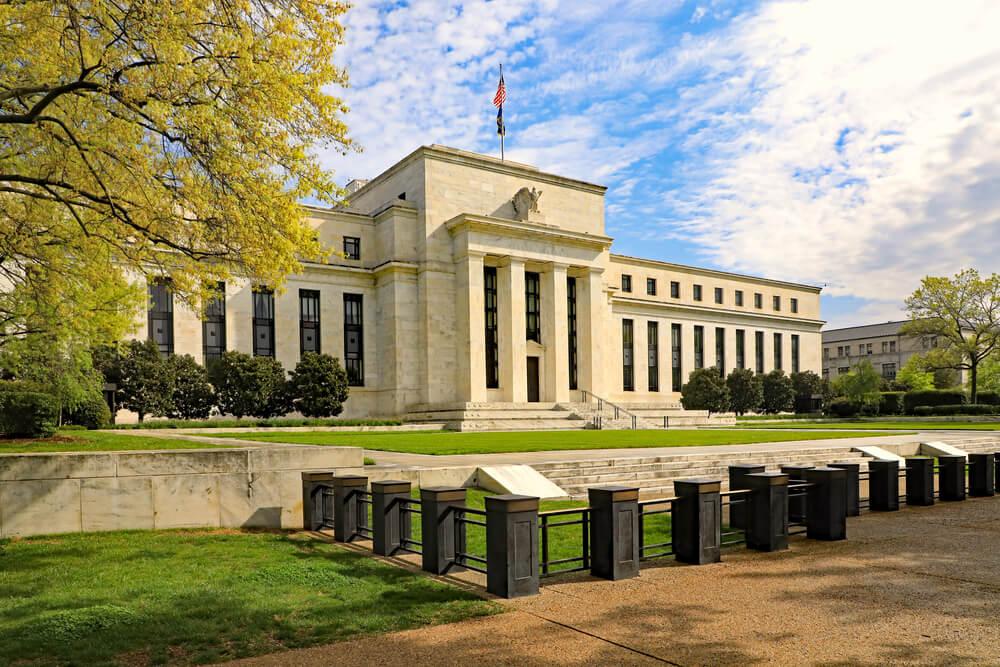Atlanta Federal Reserve Bank President Raphael Bostic said this morning he doesn’t expect the coronavirus outbreak to have a lasting impact on U.S. markets or the economy, and traders are prematurely pricing in a potential interest rate cut.
He also pooh-poohed the notion that central bank policy is artificially inflating the stock market — but it wasn’t exactly a strong denial (more on that later).
Bostic is one of 17 Federal Reserve officials who set monetary policy for the U.S.
“We did three cuts and right now they are working their way through the economy,” Bostic said of the Fed’s rate cutting in 2019. “We’ll just have to wait and see. That was a lot of stimulus for where the economy was and should make it more resilient to these sorts of things.”
The Latest on the Coronavirus
Latest reports say the coronavirus, also known as COVID-19, has killed more than 2,100 people including eight deaths outside mainland China, and has infected more than 76,000 people including more than 1,000 cases outside China.
Bostic said the U.S. will continue making adjustments as new information comes in and while Q1 GDP could take a hit, he expects to make up for any shortfalls by the end of Q2.
“Well the coronavirus, one of the issues that we have is new information comes in all the time. And so we know it’s going to be disruptive to China, to production and to a lot of the supply chain,” he explained. “When I talk to businesses here, what they tell me is that it’s going to be a short-run disruption if you have that kind of exposure. But they’re not expecting to lay off folks, they’re not expecting there will be an extended negative impact. And so I think this is going to be a short-term hit, we’ll get the economy back to its usual level … 2, 2 1/4 percent.
“That’s what my models are saying right now. But of course, we get new information about the coronavirus pretty much every day. And so while we have that as our baseline, we’re always … monitoring to make sure that there aren’t new things that are coming up that have some deeper implications for the economy.”
“It’s going to be a short term hit,” says Atlanta Fed President Raphael Bostic on the impact of #coronavirus on business. “My general outlook for the economy is pretty good.” pic.twitter.com/ab6tVHKJY3
— Squawk Box (@SquawkCNBC) February 21, 2020
Bostic (Sort of) Says Fed Isn’t Inflating Stocks
Bostic also downplayed the notion the Fed’s easy-money policies have artificially inflated the stock market, though his answer was less than definitive — or believable.
“We’ve had a fair number of conversations about this on our team. One thing that we see is that there has been this correlation, but correlation doesn’t always equal causation and there are a lot of other things that are happening as well,” he said. “When we think about trying to identify this explicitly, the real question is, can you tease out all of the other stuff to make it clear that it is exclusively on our policy.
“Now there may be a little, but I don’t think it’s the main driver.”
Hardly a ringing endorsement.
Conversation then turned to the Fed’s market manipulation being more a factor of the three interest rate cuts we saw in 2019 instead of its repo market interference. The notion is that with rates so low, there’s no alternative because there’s no yield to make money off of in the bond markets.
“So that’s possible. Again, there are a lot of things going on to drive this,” Bostic said. “If you look at what’s happening in the equity market, there’s a lot of index investing that’s happening, there’s a lot of movement in terms of the technology companies. So there is some justification for it.”
Bostic closed his comments on the subject saying “the economy is strong, it can stand on its own two feet and it can grow pretty consistently.”
If that’s the case, then why aren’t interest rates higher, and why is the Fed pumping money into the repo market?
As economist Peter Schiff might say, clearly the economy can’t stand on its own two feet if it needs the Fed’s recession-era monetary interference.
Liquidity from the Fed is not pumping up the stock market artificially, says Fed’s Bostic pic.twitter.com/Cj0Mth8Yfz
— Squawk Box (@SquawkCNBC) February 21, 2020




